An Iranian judge has been arrested in Romania and a potentially seismic case is being built against him in the European Union for hostage-taking, terrorism and torture, IranWire can reveal.
The case of Gholamreza Mansouri made headlines around the world last week after it emerged he was living in Germany and wanted by Iranian authorities.
The former prosecutor fled to Germany last September on a multiple entry Schengen visa issued by the Italian embassy in Iran: He had been living there for the last 9 months, using a French SIM card.
His name surfaced last Sunday in an explosive Iranian court hearing in connection with a 500,000 euro bribe he allegedly accepted while sitting as a judge in Lavasan.
But Mansouri also stands accused of human rights violations in Iran. He is believed to have ordered the arrest and torture of at least 20 journalists in the country in his capacity as media court judge, and of ordering the kidnapping of the family of an Iranian TV producer who was later assassinated in Turkey.
International arbitrator Kaveh Moussavi is now drafting submissions to prosecutors in three separate jurisdictions: Germany, Sweden and Norway.
He and his team will argue that Mansouri can be tried in the EU for hostage-taking, terrorism and torture offences committed in the Islamic Republic, on the grounds of “command responsibility”: a form of criminal liability for the crimes of his subordinates, which he was aware of and did not prevent.
If Mansouri can be convicted on these grounds, Moussavi told IranWire, it would alter the landscape of international criminal law– and deal the Iranian government a potentially crippling blow because the same charges could be levelled at anyone who has held a position of seniority in Iran’s judicial system since 1979.
“The significance will be that no member of the Iranian judiciary can safely set foot outside the country without being arrested,” he said.
“The Iranian government has now realised they are in extreme danger. I exaggerate not: this could bring the regime down.”
International Outcry And a Botched Flight
Gholamreza Mansouri left Hanover, Germany last week amid widespread denunciation by activists and the NGO Reporters Without Borders (RSF), which submitted a complaint to German prosecutors asking for his arrest. Mansouri is also thought to have ordered raids and closures of several newspaper offices in Iran.
The Iranian judge then posted a video statement in which he claimed to have “full faith” in the Islamic Republic’s justice system. He claimed he would be returning to the country to attend court as soon as the borders reopened.
This, the lawyer Kaveh Moussavi says, was a lie. He says he has seen “hard evidence” that the judge paid £20,000 to a people-smuggler to seek a Schengen multiple-entry visa for the rest of his family to join him in Germany.
Moussavi, a former Head of Public Interest Law at Oxford University, is an expert on the principle of universal jurisdiction: the legal concept that a state can prosecute someone for certain types of crime, regardless of where in the world the alleged crime took place. It was first used to permit the 1998 arrest of Augusto Pinochet in London for human rights atrocities committed during his presidency in Chile.
In a landmark development of the principle last year, Moussavi succeeded in having the notorious Iranian judge Hamid Nouri arrested by Swedish police for ordering the mass execution of dissidents in Iran in 1988. The former assistant prosecutor of Iran’s Gohardasht Prison was detained at Stockholm airport and charged with five counts all relating to the 1980s massacre of political prisoners. He remains in custody while evidence is prepared for his trial.
On Monday last week, Kaveh Moussavi tweeted his intention to go after Mansouri and appealed to Iranians for incriminating evidence. Mansouri then fled to Romania and presented himself to the Iranian embassy in Bucharest, asking to be sent home immediately.
In a video posted on Twitter on Friday, a man who claimed to be Mansouri's nephew, Saeed Mansouri, said his uncle was then taken to hospital by embassy staff after falling badly ill. But on arrival he was arrested by Romanian police, who then handed him over to Interpol.
Yesterday a spokesman for Iran’s judiciary, Gholam-Hossein Esmaili, told FARS News Agency that Mansouri had been apprehended at Iran’s request.
He added: “The person is under custody of the Interpol and necessary coordination has been made to extradite him. We hope that this mutual cooperation [with Interpol] will continue.”
Witnesses Come Forward With Accounts of Atrocities
Mansouri is wanted in Iran to stand trial for his part in an ongoing sensational corruption case involving senior members of Iran’s judiciary, chief among them former deputy head Akbar Tabari.
But Kaveh Moussavi says this is unlikely to happen. Iran has never succeeded in getting its nationals extradited from the EU, he notes, because it employs the death penalty and torture, and detainees’ rights would likely be violated under Article 6 of the European Convention on Human Rights: the right to a fair trial.
Instead he is building a case against Mansouri in the European Union which is likely to be submitted to prosecutors in a matter of days.
So far Moussavi and his team have heard from more than 40 individuals with information on Mansouri’s alleged crimes, of which seven are willing to be witnesses in a trial.
They include Iranian journalists – including two witnesses in Sweden and Norway – who say they were arrested and tortured on Mansouri’s orders in the 2010s. One has also told Moussavi that Judge Mansouri personally tortured him in prison, beating him so badly that his ribs were broken. Another claims that Mansouri told them: “Most of you deserve to be killed anyway”.
Kaveh Moussavi says he has also been presented with evidence that Mansouri ordered the kidnapping of family members of Saeed Karimian, founder of the Turkey-based Persian channel Gem TV, in the 2010s.
The family were held in solitary confinement – which in Iran meets the European threshold for torture – and Karimian was pressured to shut down his channel. He closed the channel, but took it back on air 10 days later when the family’s release – on multi-million-dollar bail – was delayed. Karimian, 45, was shot dead in Istanbul on April 29, 2017 along with his Kuwaiti business partner.
Moussavi had been due to meet Karimian in Istanbul the day he was assassinated. “It was shocking,” Moussavi says.
“I have cross-examined all the witnesses that came forward to make sure they weren’t plants by the regime and it’s very clear to me that in every material detail, what they were telling me was true.”
He believes that based on the evidence gathered so far, Mansouri could also be convicted of a terrorism offence for his part in the eventual killing of Saeed Karimian. “He was the beginning of the chain of causation that led to someone being assassinated in Istanbul.”
Officials from Iran have been prosecuted for their part in crimes committed overseas before. But if Mansouri or Hamid Nouri are prosecuted in Europe, it will be the first time in 41 years that an official of the Islamic Republic faces reprisal abroad for internationally-recognised crimes they ordered or oversaw that took place exclusively in Iran.
Christophe Deloire, secretary-general of RSF International, also tweeted yesterday to say that for his part, his organization has now filed a fresh complaint against Mansouri with the Romanian General Prosecutor.
"It would be the honor of the country not to let this torturer go," he wrote. "We expect the judiciary to fight impunity for crimes against journalists."
visit the accountability section
In this section of Iran Wire, you can contact the officials and launch your campaign for various problems






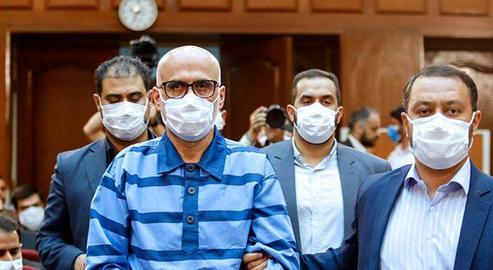
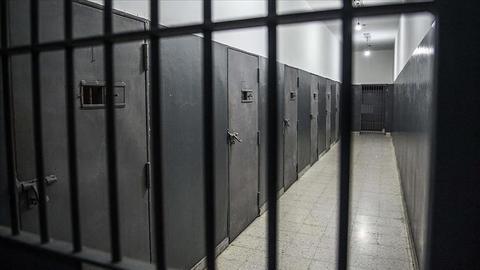
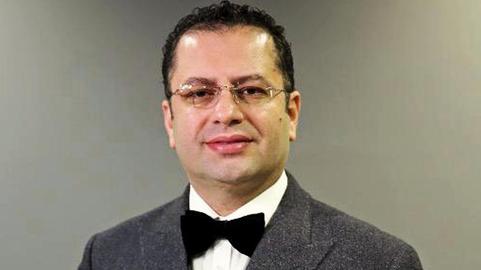
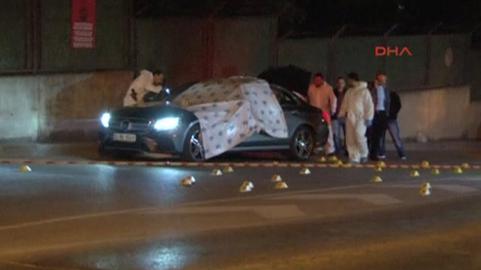
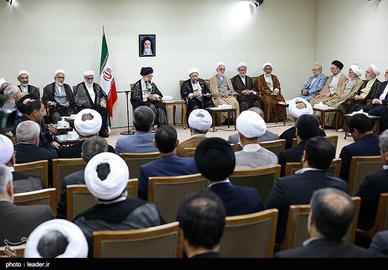




















comments